Media Coverage

The Washington Post
Scheduling takes the fun out of free time, says Gabriela Tonietto, an assistant professor of marketing at Rutgers Business School. According to her previous research, penciling in a date and time for leisure can make it feel like a chore. It also decreases anticipation of that free time. “Scheduled leisure is less enjoyable than more spontaneous or impromptu leisure,” Tonietto says. “It makes it feel more like work once it’s on your calendar. People start saying, ‘Well, this is an obligation,’ as opposed to something that you want to do.” While some scheduling is inevitable, “rough scheduling” is often best: Make loose plans to meet someone for lunch or for a jog on a Friday, for example, but don’t assign a time until shortly beforehand. That’s one way to leave room for spontaneity.

Rutgers Today
Ismael Essome applied for the Mandela Washington Fellowship and was assigned to the Leadership in Business Institute at Rutgers under the mentorship of Kevin Lyons, associate professor of professional practice at Rutgers Business School and Johanna Bernstein, assistant dean for global programs at Rutgers Global.
“This is the magic of Mandela Washington Fellowship,” Essome said. “With this fellowship, we were able to create a partnership with TerraCycle that wasn’t a business-to-business arrangement, but a business-to-social action arrangement – something I wouldn’t have been able to achieve without the connections I made through Rutgers.”
“This is the magic of Mandela Washington Fellowship,” Essome said. “With this fellowship, we were able to create a partnership with TerraCycle that wasn’t a business-to-business arrangement, but a business-to-social action arrangement – something I wouldn’t have been able to achieve without the connections I made through Rutgers.”

Vice
Most of the work on leisure has focused on time scarcity, or when people have small amounts of discretionary time. “Most people know someone, or are someone who gives themselves a really hard time about engaging in leisure,” said Gabriela Tonietto, an assistant professor of marketing at Rutgers Business School. “People say that they want leisure, they want work-life balance, but they don’t actually use their leisure time. Plenty of Americans don’t use all their vacation days. Many of us work while on vacation.”

CNN Business
Shoppers these days may need to take a cue from a Rolling Stones hit when it comes to setting their expectations: You can't always get what you want.
"Delays during the pandemic have caused a lot of pain in terms of putting a brake on both instant gratification and efficiency. Now consumers are trying to recalibrate," said Ashwani Monga, a professor of marketing at Rutgers Business School and author of the book Becoming a Consumer Psychologist.
"Delays during the pandemic have caused a lot of pain in terms of putting a brake on both instant gratification and efficiency. Now consumers are trying to recalibrate," said Ashwani Monga, a professor of marketing at Rutgers Business School and author of the book Becoming a Consumer Psychologist.

Fortune
Keith Kirkland is a Black entrepreneur. He and a partner devised the wearable technology that enabled a blind man to run the New York City Marathon with no other navigation assistance. That exciting proof of concept opened doors to other “GPS you can feel” applications. Their company, WearWorks, has attracted investment capital to hire, scale, and solve more problems.
It’s a great story of entrepreneurship, but here’s a question it raises: Why aren’t there more Keith Kirklands getting early-stage equity capital? Statistics show that while the rate of entrepreneurship has been higher among Black Americans than in the white population in recent years, their businesses on average stay smaller. The vast majority do not have even a single employee beyond the owner. What’s holding these entrepreneurs back is a puzzle that people committed to racial economic justice and city leaders striving to boost their economies have been trying to solve for years.
Some intermediaries provide the pre-seed capital, often through awards at pitch competitions. In Keith Kirkland’s case, a $10,000 award from Rutgers’ Center for Urban Entrepreneurship and Economic Development catalyzed a $25,000 investment from the Black and Latino Angel Investment Fund of New Jersey. This helped put WearWorks on the radar for an investment syndicate who collectively kicked in $115,000 more.
It’s a great story of entrepreneurship, but here’s a question it raises: Why aren’t there more Keith Kirklands getting early-stage equity capital? Statistics show that while the rate of entrepreneurship has been higher among Black Americans than in the white population in recent years, their businesses on average stay smaller. The vast majority do not have even a single employee beyond the owner. What’s holding these entrepreneurs back is a puzzle that people committed to racial economic justice and city leaders striving to boost their economies have been trying to solve for years.
Some intermediaries provide the pre-seed capital, often through awards at pitch competitions. In Keith Kirkland’s case, a $10,000 award from Rutgers’ Center for Urban Entrepreneurship and Economic Development catalyzed a $25,000 investment from the Black and Latino Angel Investment Fund of New Jersey. This helped put WearWorks on the radar for an investment syndicate who collectively kicked in $115,000 more.

Fox 5 New York
Rutgers Business School financial technology professor Dr. Merav Ozair expressed neither shock nor outrage nor confusion over Sotheby's auctioning off a lot of 101 JPEGs of cartoonish apes for $24.4 million.
"It's a historical moment," she said. "Probably this particular NFT will increase in value because it was the first."
Or at least one of the first of these collections of profile-pic-style NFTs. The creators of the Bored Ape Yacht Club used an algorithmic program mixing and matching images of apes, different fur colors and fur patterns, outfits and accessories to create 10,000 unique images varying in rarity.
"It's a historical moment," she said. "Probably this particular NFT will increase in value because it was the first."
Or at least one of the first of these collections of profile-pic-style NFTs. The creators of the Bored Ape Yacht Club used an algorithmic program mixing and matching images of apes, different fur colors and fur patterns, outfits and accessories to create 10,000 unique images varying in rarity.

The Daily Targum
Three Rutgers Business School professors recently acquired a grant from the New Jersey Department of Environmental Protection to improve the University’s recycling process.
Mark Rodgers, Matthew Walsman and Kevin Lyons, professors in the Department of Supply Chain Management, received $206,346 as part of the state’s Recycling Enhancement Grant Research program, according to the article.
“We really want to get to a model where it’s like a circular system — where we can use (waste) for something else, or we can make something else with it,” Lyons said. “At Rutgers, for instance, our carpeting that’s in some of our buildings was made from soda bottles and water bottles and such. So there's ways that you can do this, but everybody has to be on the same page.”
Mark Rodgers, Matthew Walsman and Kevin Lyons, professors in the Department of Supply Chain Management, received $206,346 as part of the state’s Recycling Enhancement Grant Research program, according to the article.
“We really want to get to a model where it’s like a circular system — where we can use (waste) for something else, or we can make something else with it,” Lyons said. “At Rutgers, for instance, our carpeting that’s in some of our buildings was made from soda bottles and water bottles and such. So there's ways that you can do this, but everybody has to be on the same page.”

KOREABIZCAST
In the first segment, Alex Jensen looks at cryptocurrencies. Are they a good investment and a democratic way to transfer money, or are they a Ponzi scheme to lure those caught up in the hype? Alex talks with Dr. Nicolas Weaver, a crypto-septic from UC Berkeley and Dr. Merav Ozair a proponent of cryptos and NFTs.
Listen to the podcast
Listen to the podcast

Poets & Quants
And it’s not just employers that are highlighting the need for supply chain management. According to Alok Baveja, a professor at Rutgers Business School, incoming business school students, who traditionally seek out finance, are now showing greater interest in the topic as well.

New Jersey Business
Another effort comes from the Center for Urban Entrepreneurship and Economic Development (CUEED) at Rutgers Business School, which was founded in 2009 and has since worked with some 600 entrepreneurs on strategic planning, marketing and other advisory services. Over the last two years, CUEED has also been helping connect these entrepreneurs to capital through federal grants; an angel investment group of alumni, and others in the community; and the Black Entrepreneurs Survive and Thrive (BEST) Fund, which was started during the pandemic to provide 0% loans of $25,000 to $50,000 to Black-owned businesses.
The CUEED angel fund is focused on growth businesses, a lot of which are tech or tech enabled. According to Executive Director Lyneir Richardson, most of the entrepreneurs CUEED works with own “everyday” businesses. More than 70% of these business owners are Black or Latino; 40% are based in Newark or adjacent communities; and more than 200 generate over $1 million a year.
“My goal at CUEED is that when someone establishes that they have a solid business idea, we can put in the first $25,000 to $50,000 to get it off the ground,” Richardson says. “Black and Latino entrepreneurs need that early seed stage capital because of all the systemic inequality that’s been in America.”
The CUEED angel fund is focused on growth businesses, a lot of which are tech or tech enabled. According to Executive Director Lyneir Richardson, most of the entrepreneurs CUEED works with own “everyday” businesses. More than 70% of these business owners are Black or Latino; 40% are based in Newark or adjacent communities; and more than 200 generate over $1 million a year.
“My goal at CUEED is that when someone establishes that they have a solid business idea, we can put in the first $25,000 to $50,000 to get it off the ground,” Richardson says. “Black and Latino entrepreneurs need that early seed stage capital because of all the systemic inequality that’s been in America.”

The Daily Targum
A recent Rutgers study has found that people who find leisure activities wasteful tend to be more depressed, anxious and stressed, according to an article from Rutgers Today.
This is because people who see leisure as wasteful are unable to fully reap the benefits of it, which include enjoyment or relaxation, said lead author Gabriela Tonietto, a professor in the Department of Marketing at Rutgers Business School.
This is because people who see leisure as wasteful are unable to fully reap the benefits of it, which include enjoyment or relaxation, said lead author Gabriela Tonietto, a professor in the Department of Marketing at Rutgers Business School.

The New York Times
When Mattel introduced the brawny superhero He-Man in 1982, he was an instant hit. Now, nearly four decades after their first appearance, He-Man and the rest of the Masters
of the Universe are looking to conquer the toy aisles again.
And Mattel is expanding the Masters of the Universe’s roster of muscled heroes with the introduction of Sun-Man, a Black character created in 1985 by a New Jersey mother who wanted to create a role model for her son.
“My son said he couldn’t be a superhero because he was Black. He was 3,” said Yla Eason, an assistant professor of professional practice at Rutgers University.
So she started her own company, Olmec Toys, to make Sun-Man and other toys for Black, Hispanic and Native American children. “The intention was to give positive Black presentation in imagination and creativity,” she said.
of the Universe are looking to conquer the toy aisles again.
And Mattel is expanding the Masters of the Universe’s roster of muscled heroes with the introduction of Sun-Man, a Black character created in 1985 by a New Jersey mother who wanted to create a role model for her son.
“My son said he couldn’t be a superhero because he was Black. He was 3,” said Yla Eason, an assistant professor of professional practice at Rutgers University.
So she started her own company, Olmec Toys, to make Sun-Man and other toys for Black, Hispanic and Native American children. “The intention was to give positive Black presentation in imagination and creativity,” she said.

WalletHub
Umbrella insurance is a type of insurance coverage that extends the liability insurance from an auto or homeowner’s insurance policy to cover more situations with higher limits.
Who should purchase umbrella insurance?
Umbrella insurance makes sense for people that want to preserve assets, so they tend to be more affluent. Umbrella insurance is usually placed "on top" of your traditional car and/or homeowner insurance. So, if your auto insurance has a maximum at-fault coverage of $250,000 and your net worth is less than $250,000 it probably does not make sense to purchase umbrella insurance.
Who should purchase umbrella insurance?
Umbrella insurance makes sense for people that want to preserve assets, so they tend to be more affluent. Umbrella insurance is usually placed "on top" of your traditional car and/or homeowner insurance. So, if your auto insurance has a maximum at-fault coverage of $250,000 and your net worth is less than $250,000 it probably does not make sense to purchase umbrella insurance.
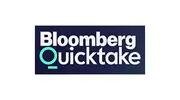
Bloomberg QuickTake
Professor Merav Ozair appeared on Bloomberg Quicktake Focus. She was asked about the repercussions of Coinbase experiencing errors in the middle of Bitcoin’s big sell-off and the need for regulation and consumer protection.
Watch video
Watch video

MSN
With hustle culture too often glorified (despite its link with the health-compromising effects of burnout), there's a good chance you've brushed up against a demand for hyper-productivity, in one way or another—whether at your workplace, in your personal life, or of your own volition. This productivity push is so pervasive, in fact, that it’s capable of inducing “productivity guilt” in anyone who feels they’re not measuring up. And according to new research, it may even counteract your ability to reap the mental-health benefits of leisure activities, too.
“Those who reported viewing leisure as wasteful also reported less enjoyment of what they did for Halloween if it was a ‘terminal’ leisure activity—which is just where the activity and the goal are the same, [which here is] to have fun, as in going to a Halloween party,” says Gabriela Tonietto, PhD, an author on the study and assistant professor of marketing at Rutgers Business School. “By contrast, views on leisure did not impact participants’ enjoyment of what we called 'instrumental' leisure activities—those that contribute to some larger goal, like, in this case, taking your kid trick-or-treating,” says Dr. Tonietto.
“Those who reported viewing leisure as wasteful also reported less enjoyment of what they did for Halloween if it was a ‘terminal’ leisure activity—which is just where the activity and the goal are the same, [which here is] to have fun, as in going to a Halloween party,” says Gabriela Tonietto, PhD, an author on the study and assistant professor of marketing at Rutgers Business School. “By contrast, views on leisure did not impact participants’ enjoyment of what we called 'instrumental' leisure activities—those that contribute to some larger goal, like, in this case, taking your kid trick-or-treating,” says Dr. Tonietto.

LADDERS
Now, a fascinating new joint study from Rutgers University, The Ohio State University, and Harvard University is providing a new, scientific take on this idea. Their research strongly indicates that believing or feeling like leisure activities or time spent relaxing is a “waste” results in more stress and depression, greater anxiety, and less happiness overall.
“While work can impart meaning and a sense of purpose in life, leisure — such as time with family and friends, hobbies, and exercise — is what makes our lives happy and healthy,” says lead study author Gabriela Tonietto, an assistant professor of marketing at Rutgers Business School–Newark and New Brunswick. “But not everyone sees value in time spent on leisure. Many hold a general belief that these activities are an unproductive use of time — at the cost of their own happiness. We find that believing leisure is wasteful causes time spent on leisure to be less enjoyable.”
“While work can impart meaning and a sense of purpose in life, leisure — such as time with family and friends, hobbies, and exercise — is what makes our lives happy and healthy,” says lead study author Gabriela Tonietto, an assistant professor of marketing at Rutgers Business School–Newark and New Brunswick. “But not everyone sees value in time spent on leisure. Many hold a general belief that these activities are an unproductive use of time — at the cost of their own happiness. We find that believing leisure is wasteful causes time spent on leisure to be less enjoyable.”

Bloomberg
U.S. business schools are refreshing their supply-chain coursework to make sure the next generation of logistics managers is prepared for future crises.
Incoming business students who once defaulted to finance or marketing now want to explore supply-chain management, says Alok Baveja, a professor at Rutgers Business School.
Incoming business students who once defaulted to finance or marketing now want to explore supply-chain management, says Alok Baveja, a professor at Rutgers Business School.
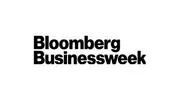
Bloomberg Businessweek
The just-in-time inventory systems embraced by many businesses led to empty shelves and costly bottlenecks. That’s put a rare spotlight on supply-chain programs, which are attracting more students.
Incoming business students who once defaulted to finance or marketing now want to explore supply-chain management, says Alok Baveja, a professor at Rutgers Business School, whose faculty includes former executives of nearby pharmaceutical giants such as Johnson & Johnson.
Incoming business students who once defaulted to finance or marketing now want to explore supply-chain management, says Alok Baveja, a professor at Rutgers Business School, whose faculty includes former executives of nearby pharmaceutical giants such as Johnson & Johnson.

The Buttonwood Tree
Dr. Merav Ozair, a FinTech Faculty member and a leading blockchain expert, at Rutgers Business School, sees Europe as a major player coming up in Cryptocurrency.
“From a regulation perspective, this space is mostly unregulated, and there is much uncertainty, and more clarity is needed,” she tells The Buttonwood Tree. “The European regulators, unlike the US or Chinese regulators, have been exploring different proposals and trying to provide guidelines and clarity. If the European provide the regulatory clarity without impeding innovation and technology evolution, then Europe may have the potential to become the hub of innovation, as many companies might migrate to Europe for the regulatory clarity and the innovation fostering environment it provides.”
“From a regulation perspective, this space is mostly unregulated, and there is much uncertainty, and more clarity is needed,” she tells The Buttonwood Tree. “The European regulators, unlike the US or Chinese regulators, have been exploring different proposals and trying to provide guidelines and clarity. If the European provide the regulatory clarity without impeding innovation and technology evolution, then Europe may have the potential to become the hub of innovation, as many companies might migrate to Europe for the regulatory clarity and the innovation fostering environment it provides.”

NJ Tech Weekly
NJ Tech Weekly, Podcast Producer, ABF Creative, Leverages Machine Learning and AI, Lyneir Richardson
Serial entrepreneur and Newark startup activist Anthony Frasier has hitched his wagon to the skyrocketing podcasting industry. His podcast network is producing cutting-edge work that connects him to his roots and his community.
Going back to his beginnings in podcasting, Frasier noted that when he started out, he had nothing. He didn’t even have production equipment or content, he only knew that he wanted to tell stories. But Lyneir Richardson, executive director of the Center for Urban Entrepreneurship & Economic Development, at Rutgers Business School, gave him a chance when he pitched a podcast that would feature interviews with venture capitalists. Frasier admits he didn’t know much about what he was doing, but the podcast, called “VC Cheat Sheet,” turned out well. “It really put the name of the Center for Urban Entrepreneurship out there,” and it was a very successful podcast for Rutgers, he said.
Going back to his beginnings in podcasting, Frasier noted that when he started out, he had nothing. He didn’t even have production equipment or content, he only knew that he wanted to tell stories. But Lyneir Richardson, executive director of the Center for Urban Entrepreneurship & Economic Development, at Rutgers Business School, gave him a chance when he pitched a podcast that would feature interviews with venture capitalists. Frasier admits he didn’t know much about what he was doing, but the podcast, called “VC Cheat Sheet,” turned out well. “It really put the name of the Center for Urban Entrepreneurship out there,” and it was a very successful podcast for Rutgers, he said.

Press Republican
BY GLENN SHAFER Guest Correspondent
I am writing because of the heartbreaking events in Afghanistan, which we are all witnessing from afar.
I was a Peace Corps volunteer there during the academic year 1968-1969. That does not make me an expert on what has happened in the 50 years since or on what is happening now. But in this emotional moment, in the cacophony of opinion aroused by our distress, I want to share my feelings and my thinking with those close to me.
I feel the greatest affection for the Afghans, all those I knew and all those I do not know. All of them, including those who have cast their lot with the Taliban. I also feel great affection for the Peace Corps and great respect for my fellow volunteers, most of whom made great contributions to the lives of those with whom they worked. As it happened, perhaps because I expected too much, I was not myself able to make such a contribution. A Peace Corps volunteer signs up for a two-year stint, but I left after one year.
I am writing because of the heartbreaking events in Afghanistan, which we are all witnessing from afar.
I was a Peace Corps volunteer there during the academic year 1968-1969. That does not make me an expert on what has happened in the 50 years since or on what is happening now. But in this emotional moment, in the cacophony of opinion aroused by our distress, I want to share my feelings and my thinking with those close to me.
I feel the greatest affection for the Afghans, all those I knew and all those I do not know. All of them, including those who have cast their lot with the Taliban. I also feel great affection for the Peace Corps and great respect for my fellow volunteers, most of whom made great contributions to the lives of those with whom they worked. As it happened, perhaps because I expected too much, I was not myself able to make such a contribution. A Peace Corps volunteer signs up for a two-year stint, but I left after one year.

WalletHub
Discover does not currently charge annual fees or foreign transaction fees on any of their credit cards; how likely is that to last?
The vast majority of credit card companies charge no annual fees. A lesser number of firms offer cards with no foreign transaction fees. The combination of the two benefits is a good deal for consumers. However, Discover is not the only option out there that offers these benefits, so I would expect it to last for at least a few years.
Are credit cards that offer 5% back in rotating bonus categories a better deal for cardholders or card issuers?
The 5% rotating bonus category may be a win-win situation for both the consumer and credit card company. The 5% bonus feature may attract a large client base. However, the credit card companies know that many of their customers will not pay their balances in full, thereby enabling them to charge high rates of interest, more than offsetting the cost of the program. If consumers are smart, they can "cherry-pick" the categories where they receive the 5% bonus and stay dormant with the card for the remainder of their purchases. They could use other rewards cards for purchases outside the current 5% bonus category.
Which do you think resonates more with consumers: an initial rewards bonus of a few hundred dollars for spending a few thousand dollars in the first three months, or a one-year anniversary bonus that doubles the rewards a cardholder earned the first year?
I believe consumers are more enticed by the initial bonus. Human psychology often leads people to focus on the near-term and what may be quantified (i.e., the $x00 sign-on bonus), rather than an abstract doubling of a future unknown reward.
John M. LongoPh.D., CFA,
Professor of Finance & Economics
The vast majority of credit card companies charge no annual fees. A lesser number of firms offer cards with no foreign transaction fees. The combination of the two benefits is a good deal for consumers. However, Discover is not the only option out there that offers these benefits, so I would expect it to last for at least a few years.
Are credit cards that offer 5% back in rotating bonus categories a better deal for cardholders or card issuers?
The 5% rotating bonus category may be a win-win situation for both the consumer and credit card company. The 5% bonus feature may attract a large client base. However, the credit card companies know that many of their customers will not pay their balances in full, thereby enabling them to charge high rates of interest, more than offsetting the cost of the program. If consumers are smart, they can "cherry-pick" the categories where they receive the 5% bonus and stay dormant with the card for the remainder of their purchases. They could use other rewards cards for purchases outside the current 5% bonus category.
Which do you think resonates more with consumers: an initial rewards bonus of a few hundred dollars for spending a few thousand dollars in the first three months, or a one-year anniversary bonus that doubles the rewards a cardholder earned the first year?
I believe consumers are more enticed by the initial bonus. Human psychology often leads people to focus on the near-term and what may be quantified (i.e., the $x00 sign-on bonus), rather than an abstract doubling of a future unknown reward.
John M. LongoPh.D., CFA,
Professor of Finance & Economics

The Guardian
The conceptual idea of “revenge wear” still exists, but it has evolved beyond the singular. “Acts of revenge dressing and shopping have always existed but used to be individualistic – people expressed themselves depending on their unique personal circumstance,” says Professor Ashwani Monga from Rutgers Business School. “However, the pandemic is something that all of us are going through collectively. Hence we are going through similar sets of emotions and reacting in similar kinds of ways.”
Professor Monga explains the thinking behind it: “If I do revenge shopping, I’m harming my ‘virtue self’ that reigned supreme through the pandemic, restraining me from spending money on frivolous, shallow, consumption. Enough of this goody-two-shoes self,” he says. “At the same time, revenge shopping helps me reward my ‘vice self’ that wants to finally let go, indulge and have fun after a long period filled with misery.”
Monga thinks that the concept of the “revenge dress” has changed. “It’s no longer about a stance against other people. Rather, it is about a stance against one’s own ‘virtue self’ which acted as a restraint on extravagant consumption through the pandemic.”
Professor Monga explains the thinking behind it: “If I do revenge shopping, I’m harming my ‘virtue self’ that reigned supreme through the pandemic, restraining me from spending money on frivolous, shallow, consumption. Enough of this goody-two-shoes self,” he says. “At the same time, revenge shopping helps me reward my ‘vice self’ that wants to finally let go, indulge and have fun after a long period filled with misery.”
Monga thinks that the concept of the “revenge dress” has changed. “It’s no longer about a stance against other people. Rather, it is about a stance against one’s own ‘virtue self’ which acted as a restraint on extravagant consumption through the pandemic.”

U.S. News & World Report
Struggling to decide whether to spend another hour at the office or take a late afternoon stroll? Put on your walking shoes.
Making leisure time a priority is good for your mental health. For many, though, especially folks who prize productivity above all, it's a hard sell, a new study finds.
"But those who participated in fun activities that fulfilled responsibilities, like trick or treating with your kids, didn't see such a reduction in how much they enjoyed their Halloween," said study co-author Gabriela Tonietto, an assistant professor of marketing at Rutgers Business School in Newark, N.J.
If you view leisure as wasteful, think about the productive ways that individual leisure activities can serve your long-term goals, Tonietto suggested. In other words, link each leisure activity to something you want to accomplish.
Making leisure time a priority is good for your mental health. For many, though, especially folks who prize productivity above all, it's a hard sell, a new study finds.
"But those who participated in fun activities that fulfilled responsibilities, like trick or treating with your kids, didn't see such a reduction in how much they enjoyed their Halloween," said study co-author Gabriela Tonietto, an assistant professor of marketing at Rutgers Business School in Newark, N.J.
If you view leisure as wasteful, think about the productive ways that individual leisure activities can serve your long-term goals, Tonietto suggested. In other words, link each leisure activity to something you want to accomplish.

News Wise
As a key player in developing and transforming innovators into entrepreneurs that improve people’s lives, Rutgers, The State University of New Jersey will expand its entrepreneurship training programming and further equip faculty and student researchers with the skills and strategy needed to transition their discoveries into technologies and products, as a partner in the newly created NSF I-Corps™ Hub: Northeast Region.
Jeffrey Robinson, an associate professor at Rutgers Business School and academic director of The Center for Urban Entrepreneurship & Economic Development, will also serve as the Research Lead for the entire Hub and spearhead entrepreneurship research on both deep tech and inclusive innovation as co-investigator on the grant.
“Inclusive innovation is the idea that the visionaries, entrepreneurs and gatekeepers of technology innovation should be as diverse as our nation. This diversity leads to brilliant ideas, new companies, and international leadership in innovation,” said Robinson. “The I-Corps Hub: Northeast Region offers us a unique opportunity to study how the diversity of our area can be harnessed for regional development and national competitiveness,”
Jeffrey Robinson, an associate professor at Rutgers Business School and academic director of The Center for Urban Entrepreneurship & Economic Development, will also serve as the Research Lead for the entire Hub and spearhead entrepreneurship research on both deep tech and inclusive innovation as co-investigator on the grant.
“Inclusive innovation is the idea that the visionaries, entrepreneurs and gatekeepers of technology innovation should be as diverse as our nation. This diversity leads to brilliant ideas, new companies, and international leadership in innovation,” said Robinson. “The I-Corps Hub: Northeast Region offers us a unique opportunity to study how the diversity of our area can be harnessed for regional development and national competitiveness,”

The Wall Street Journal
“This belief that positive events are going to go quickly and feel short can be exacerbated when we think about the ending,” says Gabriela Tonietto, assistant professor of marketing at Rutgers Business School and a co-author of the study.
One solution, the researchers say, is to focus on the experiences you will have on the vacation, not on its duration. Ms. Tonietto says she put her theory to the test when her honeymoon to Greece was delayed for more than a year because of the pandemic. She tried not to think about the length of the honeymoon relative to the number of months she had to wait until it began.
“I thought about the different places, hotels and experiences we would have—from snorkeling to visiting different beaches to a sunset cruise to a couple’s wine tasting and cooking class,” she says. As a result, she believes, instead of fretting about how short the vacation would be, she enjoyed the anticipation.
One solution, the researchers say, is to focus on the experiences you will have on the vacation, not on its duration. Ms. Tonietto says she put her theory to the test when her honeymoon to Greece was delayed for more than a year because of the pandemic. She tried not to think about the length of the honeymoon relative to the number of months she had to wait until it began.
“I thought about the different places, hotels and experiences we would have—from snorkeling to visiting different beaches to a sunset cruise to a couple’s wine tasting and cooking class,” she says. As a result, she believes, instead of fretting about how short the vacation would be, she enjoyed the anticipation.

Thomson Reuters
Step one, what is a fungible token? When an item is fungible it is interchangeable and, in some cases, also indistinguishable. Take two one-dollar bills, for example. They are fungible. As Dr. Ozair explains, “If I go to Starbucks and I give them this dollar bill or that dollar bill, they don’t care right? This is what fungible means because it is interchangeable. However, the two are distinguishable because they have serial numbers – this is how the Central Bank tracks them. In this case, the two one-dollar bills are interchangeable but not indistinguishable.”
But that is the physical world. What about the tokenization world? Dr. Ozair says, “As for the tokenization and crypto world, you can think about bitcoin as being the equivalent of the one-dollar bill. It is interchangeable but it’s not indistinguishable because it has a unique hash number (the analogous to a serial number)” In the tokenization world when something is unique, it has its own entity.
But that is the physical world. What about the tokenization world? Dr. Ozair says, “As for the tokenization and crypto world, you can think about bitcoin as being the equivalent of the one-dollar bill. It is interchangeable but it’s not indistinguishable because it has a unique hash number (the analogous to a serial number)” In the tokenization world when something is unique, it has its own entity.

WalletHub
Whether you’re joining the real-estate business or just looking for a place to call home, it’s important to get a handle on the housing markets you’re considering before investing in a property.
Is now a good time to buy? What economic indicators should potential buyers be watching?
That's a difficult question of course because there is a lot of market uncertainty right now, and the situation for each household might be different. In general, I think for households with a stable income and no short-term plans to move to a different city it is a good time to buy right now. Interest rates are really low, lending standards are not too strict, and I do not see house prices falling any time soon.
Morris A. Davis
Academic Director, Center for Real Estate,
Paul V. Profeta Chair of Real Estate,
Professor of Finance and Economics
Is now a good time to buy? What economic indicators should potential buyers be watching?
That's a difficult question of course because there is a lot of market uncertainty right now, and the situation for each household might be different. In general, I think for households with a stable income and no short-term plans to move to a different city it is a good time to buy right now. Interest rates are really low, lending standards are not too strict, and I do not see house prices falling any time soon.
Morris A. Davis
Academic Director, Center for Real Estate,
Paul V. Profeta Chair of Real Estate,
Professor of Finance and Economics

Rutgers Today
While many – from Aristotle to the Dalai Lama – have opined on the state of human happiness, a new Rutgers-led study finds that utter contentment depends, at least in part, on believing that leisure activities are not a waste of time.
The findings from four studies appear in the "Journal of Experimental Social Psychology."
“While work can impart meaning and a sense of purpose in life, leisure, such as time with family and friends, hobbies and exercise, is what makes our lives happy and healthy,” said lead author Gabriela Tonietto, an assistant professor of marketing at Rutgers Business School–Newark and New Brunswick. “But not everyone sees value in time spent on leisure. Many hold a general belief that these activities are an unproductive use of time – at the cost of their own happiness. We find that believing leisure is wasteful causes time spent on leisure to be less enjoyable.”
The findings from four studies appear in the "Journal of Experimental Social Psychology."
“While work can impart meaning and a sense of purpose in life, leisure, such as time with family and friends, hobbies and exercise, is what makes our lives happy and healthy,” said lead author Gabriela Tonietto, an assistant professor of marketing at Rutgers Business School–Newark and New Brunswick. “But not everyone sees value in time spent on leisure. Many hold a general belief that these activities are an unproductive use of time – at the cost of their own happiness. We find that believing leisure is wasteful causes time spent on leisure to be less enjoyable.”

Yahoo! Finance
It’s no doubt the pressures of the pandemic — which have forced staying at home more, and consequently, spending more time online — are largely to blame for the increase in online shopping. But how do you curb your online shopping habit if it’s gotten out of control? Easy. Put saving first and set up some roadblocks to make impulse spending more difficult. Here’s some expert advice to get you started.
Make sure your emergency fund is set before spending on wish-list items, advises John M. Longo, Ph.D., CFA, professor of finance and economics at Rutgers Business School and author of “Buffett’s Tips: A Guide to Financial Literacy and Life.”
“The COVID-19 pandemic has made most understand that they should have an emergency fund of at least six months living expenses,” Longo said. “If you must shop online for non-necessities, then wait until your emergency fund is fully funded.”
Make sure your emergency fund is set before spending on wish-list items, advises John M. Longo, Ph.D., CFA, professor of finance and economics at Rutgers Business School and author of “Buffett’s Tips: A Guide to Financial Literacy and Life.”
“The COVID-19 pandemic has made most understand that they should have an emergency fund of at least six months living expenses,” Longo said. “If you must shop online for non-necessities, then wait until your emergency fund is fully funded.”

Ellevate
This article was inspired by my teenage son and daughter, and the unprecedented courage of young public figures who also made recent decisions to take care of themselves before pleasing others.
We have a mental health crisis. It is becoming increasingly difficult to live in our modern world without mental illness — particularly for young adults — because of a social adaptation gone awry.
All of us are walking around with brains designed to solve problems that existed thousands of years ago. None of us have brains fit to solve problems in this modern, digital world. We are all misfits in a mismatched world — and it’s literally making us sick.
We have a mental health crisis. It is becoming increasingly difficult to live in our modern world without mental illness — particularly for young adults — because of a social adaptation gone awry.
All of us are walking around with brains designed to solve problems that existed thousands of years ago. None of us have brains fit to solve problems in this modern, digital world. We are all misfits in a mismatched world — and it’s literally making us sick.

The Conversation
Warren Buffett, who turns 91 on Aug. 30, 2021, is a billionaire at a time when outrage over the excesses of extreme wealth is growing in tandem with billionaires’ fortunes.
But based on what I learned about him while becoming a scholar of finance and a portfolio manager, I see Buffett as a model for his ultrarich peers.
He has given half of his vast fortune to charity and plans to unload most of the rest during his lifetime or upon his death. Buffett also largely lives a modest lifestyle by billionaire standards; he still resides in the spacious house he bought six decades ago.
“My needs are simple,” he explained in June 2021. “What made me happy at 40 makes me happy at 90.”
But based on what I learned about him while becoming a scholar of finance and a portfolio manager, I see Buffett as a model for his ultrarich peers.
He has given half of his vast fortune to charity and plans to unload most of the rest during his lifetime or upon his death. Buffett also largely lives a modest lifestyle by billionaire standards; he still resides in the spacious house he bought six decades ago.
“My needs are simple,” he explained in June 2021. “What made me happy at 40 makes me happy at 90.”

Accounting Today
The American Institute of CPAs recognized three accounting professors for their notable teaching and research during the annual American Accounting Association meeting in Washington, D.C.
Nancy Bagranoff, a professor of accounting and university professor at the University of Richmond (Virginia), received the 2021 AICPA Distinguished Achievement in Accounting Education Award.
Jun Dai, a professor at Michigan Technological University, and Miklos Vasarhelyi, a professor at Rutgers University in New Jersey, received the 2021 Notable Contributions to Accounting Literature Award.
Dai and Vasarhelyi were honored for their co-authored paper “Toward Blockchain-Based Accounting and Assurance.”
Nancy Bagranoff, a professor of accounting and university professor at the University of Richmond (Virginia), received the 2021 AICPA Distinguished Achievement in Accounting Education Award.
Jun Dai, a professor at Michigan Technological University, and Miklos Vasarhelyi, a professor at Rutgers University in New Jersey, received the 2021 Notable Contributions to Accounting Literature Award.
Dai and Vasarhelyi were honored for their co-authored paper “Toward Blockchain-Based Accounting and Assurance.”

Research Pod
What do Richard Branson, Steve Jobs, and Elon Musk have in common? In addition to being founders of multi-billion-dollar companies, they are also outliers. Outliers can be people, businesses, institutions, or events, depending on the specific context.
Dr. G. Christopher Crawford, assistant professor of professional practice of Entrepreneurship, Strategy and Management at Rutgers Business School—Newark & New Brunswick, models the emergence of outliers in entrepreneurship and develops a theory that is applicable to both academia and mainstream culture.
Dr. Crawford points out: “Some of the most successful companies of our time, such as Apple, Amazon, Google, and Facebook, are extreme outliers that changed the nature of how we engage with the world – they transformed what we do and how we think.” He argues that these companies have a significant impact on businesses and society as a whole. Therefore, rather than ‘fixing’ or excluding these exceedingly influential anomalies from our theories and data analysis, we should turn the spotlight on them and probe their emergence.
Listen to the Research Pod, with a transcript.
Dr. G. Christopher Crawford, assistant professor of professional practice of Entrepreneurship, Strategy and Management at Rutgers Business School—Newark & New Brunswick, models the emergence of outliers in entrepreneurship and develops a theory that is applicable to both academia and mainstream culture.
Dr. Crawford points out: “Some of the most successful companies of our time, such as Apple, Amazon, Google, and Facebook, are extreme outliers that changed the nature of how we engage with the world – they transformed what we do and how we think.” He argues that these companies have a significant impact on businesses and society as a whole. Therefore, rather than ‘fixing’ or excluding these exceedingly influential anomalies from our theories and data analysis, we should turn the spotlight on them and probe their emergence.
Listen to the Research Pod, with a transcript.

EdSurge
We Wondered If NFTs Could Change Education, So We Decided to Sell This Article on the Blockchain
Since I write about education and tech, I wondered if there were applications in the world that EdSurge covers. And since so many people we talk to stress the value of experiential learning—and since this particular trend is so fast-moving and hard to illustrate—we decided to try minting and selling an NFT ourselves and document the process. Specifically, we are going to auction off an image of this article—the first NFT ever sold by EdSurge.
My first step, naturally, was to reach out to an educator who knows the NFT space. And I found Merav Ozair, an assistant professor of professional practice at Rutgers University’s business school. She’s a data scientist by training, and It turns out she has taught a few courses about blockchain, which is the technical framework that makes NFTs possible.
“If you see a painting in a museum you can take a picture of it, but it’s not the same—you don’t own it,” says Ozair. “But an NFT is like [an original] painting because it has an ownership in the code, and you can show it to everyone that you have it.”
Since I write about education and tech, I wondered if there were applications in the world that EdSurge covers. And since so many people we talk to stress the value of experiential learning—and since this particular trend is so fast-moving and hard to illustrate—we decided to try minting and selling an NFT ourselves and document the process. Specifically, we are going to auction off an image of this article—the first NFT ever sold by EdSurge.
My first step, naturally, was to reach out to an educator who knows the NFT space. And I found Merav Ozair, an assistant professor of professional practice at Rutgers University’s business school. She’s a data scientist by training, and It turns out she has taught a few courses about blockchain, which is the technical framework that makes NFTs possible.
“If you see a painting in a museum you can take a picture of it, but it’s not the same—you don’t own it,” says Ozair. “But an NFT is like [an original] painting because it has an ownership in the code, and you can show it to everyone that you have it.”
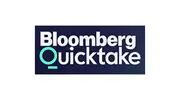
Bloomberg QuickTake
Professor Merav Ozair speaks with Tim Stenovic and Katie Greifeld on Bloomberg QuickTake about non-fungible tokens and the business-use potential of NFTs (18:30 into the video).

Fine Dining Lovers
Merav Ozair, FinTech faculty member at Rutgers Business School, thinks people can create additional income streams, as long as someone is willing to pay for their virtual/digital content. "In the case of a chef, instead of posting recipes on Facebook, a cooking video on YouTube or photos on Instagram for free, just in order to generate followers and induce sells, they can NFT [tokenise] the recipe, the video or the photo and sell it or receive royalties for it,” she says. By doing so, these professionals create an immediate income stream and protect their rights for their unique recipe or dish.

Online Engineering Programs
“When it comes to something like blockchain technology and NFTs, I believe that almost anything you can imagine can happen. So if you have an imagination and you’re enthusiastic about innovation and technology, just run with it.”
Merav Ozair, PhD, FinTech Faculty Member at Rutgers Business School, Research Director of the RBS Blockchain Hub
Merav Ozair, PhD, FinTech Faculty Member at Rutgers Business School, Research Director of the RBS Blockchain Hub

BNN Bloomberg
NFTs have become popular in industries from sports memorabilia to fashion and art, where their ability to provide authentication and uniqueness is prized. Last week, Shopify started allowing merchants on its platform to sell NFTs directly, betting that there’s demand for an alternative to third-party crypto marketplaces. The company aims to win over merchants by giving them more control over the sale and customer relationship, President Harley Finkelstein said on Twitter last week.
”We all like convenience” and Shopify makes it easier for people to buy NFTs, said Merav Ozair, an assistant professor of fintech at the Rutgers Business School who specializes in blockchain technology. “NFTs will go more and more mainstream because of Shopify’s existing customer base.”
”We all like convenience” and Shopify makes it easier for people to buy NFTs, said Merav Ozair, an assistant professor of fintech at the Rutgers Business School who specializes in blockchain technology. “NFTs will go more and more mainstream because of Shopify’s existing customer base.”

The Ripon Society
by Farrokh Langdana
A sustainable Federal budget deficit used to be defined as being less than about 5% of GDP.1 Today, the budget deficit/GDP is over 13%! Disaster, right? Should we expect hyperinflation to be coming? The short answer is no. Keep in mind we were in the same ballpark during the subprime mortgage crisis (10-12% for the budget deficit/GDP ratio) and the sky did not fall on our heads. Why not?
Back in the day with large deficits and the massive printing of money, sure, hyperinflation was a real concern and possibility. But in the subprime mortgage crisis we had a unique situation. During this particular time of turmoil, the U.S. was still the “safest cave” on the planet.2 With all global economies “huddling in their respective caves” in the global housing crisis, we were in the best position. Consequently, massive global capital poured in and, to some extent, helped fund our budget deficit.
But, despite all this, there was no notable change in inflation. Here is a very important point: Massive monetary infusions ONLY erupt into mind-numbing hyperinflations when the money is actually injected into the economy.
The Ripon Forum Magazine: https://issuu.com/riponsociety/docs/ripon_forum_-_july_2021/15
A sustainable Federal budget deficit used to be defined as being less than about 5% of GDP.1 Today, the budget deficit/GDP is over 13%! Disaster, right? Should we expect hyperinflation to be coming? The short answer is no. Keep in mind we were in the same ballpark during the subprime mortgage crisis (10-12% for the budget deficit/GDP ratio) and the sky did not fall on our heads. Why not?
Back in the day with large deficits and the massive printing of money, sure, hyperinflation was a real concern and possibility. But in the subprime mortgage crisis we had a unique situation. During this particular time of turmoil, the U.S. was still the “safest cave” on the planet.2 With all global economies “huddling in their respective caves” in the global housing crisis, we were in the best position. Consequently, massive global capital poured in and, to some extent, helped fund our budget deficit.
But, despite all this, there was no notable change in inflation. Here is a very important point: Massive monetary infusions ONLY erupt into mind-numbing hyperinflations when the money is actually injected into the economy.
The Ripon Forum Magazine: https://issuu.com/riponsociety/docs/ripon_forum_-_july_2021/15
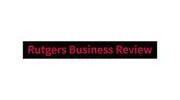
Rutgers Business Review
The Rutgers Center for Women in Business (CWIB) is honored to serve as guest editor for this special edition of the Rutgers Business Review as we spotlight scholarly research focused on advancing women in business. While women have achieved many milestones toward parity in the workplace, there is still a long way to go. CWIB was established in December 2019 as a research and education center dedicated to helping women achieve economic and workplace parity. The center accomplishes this by providing access to education, opportunity, and thought leadership that removes barriers, builds community, and empowers women with the confidence and skills to succeed as business leaders. This Rutgers Business Review issue is an extension of the center’s mission to educate both scholars and practitioners through thought leadership. We have curated articles from various academic scholars throughout the country. The articles are organized around the three tenets of the CWIB mission of removing barriers, building community, and empowering women.

The Motley Fool
Exclusive NFT Q&A with Outside Experts
The Motley Fool had the chance to connect with Dr. Merav Ozair, a FinTech Faculty Member at Rutgers Business School (RBS) and an expert on blockchain and cryptocurrency. She serves as Research Director of RBS Blockchain Hub, as well as an Advisor and Researcher at the Rutgers Blockchain and FinTech Collaboratory.
The Motley Fool: NFTs seem to be the new craze this past year, but do you anticipate this trend to continue or do you foresee NFTs being just another bubble? Why?
Dr. Ozair: Whether an asset's value is in a “bubble” or not is determined in hindsight. If you are purchasing an NFT as an investment, then the risks associated with it are the same as with any other investment -- whether that's stocks, collectibles or real estate. The NFT's value may go up or down, depending on market sentiment, conditions, or preferences. Anyone can guess at or believe what the future value will be.
The Motley Fool had the chance to connect with Dr. Merav Ozair, a FinTech Faculty Member at Rutgers Business School (RBS) and an expert on blockchain and cryptocurrency. She serves as Research Director of RBS Blockchain Hub, as well as an Advisor and Researcher at the Rutgers Blockchain and FinTech Collaboratory.
The Motley Fool: NFTs seem to be the new craze this past year, but do you anticipate this trend to continue or do you foresee NFTs being just another bubble? Why?
Dr. Ozair: Whether an asset's value is in a “bubble” or not is determined in hindsight. If you are purchasing an NFT as an investment, then the risks associated with it are the same as with any other investment -- whether that's stocks, collectibles or real estate. The NFT's value may go up or down, depending on market sentiment, conditions, or preferences. Anyone can guess at or believe what the future value will be.
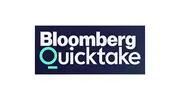
Bloomberg QuickTake
In this Bloomberg Quicktake, Rutgers Center for Women in Business Director Lisa Kaplowitz talks about the challenges working women faced, especially during the pandemic. She also offered advice and personal anecdotes on things that worked for her family.
Watch the video, 5:44
Watch the video, 5:44

NJ.com
The impact of tax credits may also be less of an incentive in a still uncertain environment. Tax attorney Jay Soled, a professor at Rutgers Business School and director of the university’s Masters in Taxation Program, said tax incentives are really not big dollars when it comes to the whole picture for a company considering relocation or expansion.
“People have to keep in mind that taxes are just one component in what goes on in these decisions. And it’s a small component,” he said.
“You can incentivize people all you want, but they are scarred from the past 18 months,” Soled said, referring to the effects of the pandemic on the economy.
“People have to keep in mind that taxes are just one component in what goes on in these decisions. And it’s a small component,” he said.
“You can incentivize people all you want, but they are scarred from the past 18 months,” Soled said, referring to the effects of the pandemic on the economy.

Jersey's Best
Before the pandemic, Kristina Durante had a hard stop in her workday at 5 p.m. to leave to pick her daughter up at aftercare. Like many others, she has enjoyed the increased flexibility caused by remote work in the pandemic. Durante, associate professor and marketing department vice chair at Rutgers Business School, saves time on her commute and is available to communicate with colleagues outside of normal business hours.
“Now I can kind of take care of those things around the house whenever I have a moment, so I’m kind of always reachable,” Durante said. “So, from the business side of it, that is a benefit.”
“Now I can kind of take care of those things around the house whenever I have a moment, so I’m kind of always reachable,” Durante said. “So, from the business side of it, that is a benefit.”

The Wall Street Journal
Why have so many countries with so many conflicting interests joined the agreement? While the agreement sounds viable in theory, in practice taxable income, which is the base on which the rate is applied, is determined independently by each country, so the tax-code definition of taxable income can be adjusted to offset an undesirable tax rate.
The agreement also refers to the statutory rate, which differs from the effective rate that corporations actually pay. The 21% statutory corporate tax rate in the U.S. is illusory because it is manipulated by a phalanx of tax lawyers and accountants, resulting in an effective rate around 8%. Similar differences between statutory and effective rates exist in other countries.
The agreement also refers to the statutory rate, which differs from the effective rate that corporations actually pay. The 21% statutory corporate tax rate in the U.S. is illusory because it is manipulated by a phalanx of tax lawyers and accountants, resulting in an effective rate around 8%. Similar differences between statutory and effective rates exist in other countries.
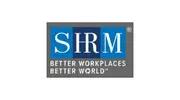
Society for Human Resource Management
Wading into controversial topics is not new for U.S. businesses, certainly not in the wake of last year's protests against police brutality and systemic racism. In one prominent example, activist ice cream maker Ben & Jerry's urged the dismantling of what it calls a domestic culture of white supremacy. Still, it's rare for a group of companies to collectively push back on a single issue.
Yet that's exactly what happened in 2021 when lawmakers in Texas as well as several other states sought to tighten access to voting amid persistent but discredited claims of voter fraud in the Nov. 3, 2020, presidential election.
Facing internal and external pressures, numerous corporations and business leaders responded.
Michael L. Barnett, a professor of management and global business at Rutgers University, calls some of the carefully worded vocalizations by businesses "a calculated risk."
"It's far from a legal contract with any binding provisions," he says. "It's a pressure-release valve for immediate problems."
"Most companies really don't want to mess with this stuff because it can just backfire quickly and suck all the oxygen out of the room," says Barnett, the Rutgers professor. "You've got lots of other things to worry about."
Yet that's exactly what happened in 2021 when lawmakers in Texas as well as several other states sought to tighten access to voting amid persistent but discredited claims of voter fraud in the Nov. 3, 2020, presidential election.
Facing internal and external pressures, numerous corporations and business leaders responded.
Michael L. Barnett, a professor of management and global business at Rutgers University, calls some of the carefully worded vocalizations by businesses "a calculated risk."
"It's far from a legal contract with any binding provisions," he says. "It's a pressure-release valve for immediate problems."
"Most companies really don't want to mess with this stuff because it can just backfire quickly and suck all the oxygen out of the room," says Barnett, the Rutgers professor. "You've got lots of other things to worry about."

Money Geek
A first credit card can be an intimidating commitment for some and, more so, a difficult one to navigate and understand. With a long list of options, finding the student credit card that best works for your needs and spending habits can be challenging. When analyzing student credit cards, there are a few key benefits and elements to keep in mind.
Many students are not educated on credit card use, managing spending and debt. What tips do you have for new credit card holders or parents looking to teach their students how to properly use a credit card?
A credit card may be profitable if you use it wisely. It provides an interest-free loan and many companies offer reward programs, providing free or discounted perks on a variety of products and services. The catch is you must have the discipline to pay off the credit card balance in full every month. Otherwise, you will be charged high interest rates that may put you in a financial hole that will be difficult to recover from. So, find credit cards that provide rewards that are tailored to your spending habits and pay them off in full each month. Otherwise, just stick to debit cards since they won’t allow you to spend more than you have in the bank.
John Longo, Professor of Finance
Many students are not educated on credit card use, managing spending and debt. What tips do you have for new credit card holders or parents looking to teach their students how to properly use a credit card?
A credit card may be profitable if you use it wisely. It provides an interest-free loan and many companies offer reward programs, providing free or discounted perks on a variety of products and services. The catch is you must have the discipline to pay off the credit card balance in full every month. Otherwise, you will be charged high interest rates that may put you in a financial hole that will be difficult to recover from. So, find credit cards that provide rewards that are tailored to your spending habits and pay them off in full each month. Otherwise, just stick to debit cards since they won’t allow you to spend more than you have in the bank.
John Longo, Professor of Finance

Money Geek
Whether you’re a freelancer, a gig worker, or a business owner with multiple employees, you may be a candidate for a small-business credit card. These can help you build both personal and business credit, finance your business charges and earn rewards.
With fewer protections and higher interest rates than consumer cards, is it truly worth it for a small business to have and use a business card versus a personal one for business expenses?
It’s not crucial to have a business card, but it makes it easier to prepare your taxes. In theory, everything on a business credit card should be tax-deductible, while there will be a mix of deductible and non-deductible items when utilizing your personal credit cards. It may also be possible that there are unique offerings of business cards related to the types of things your business purchases that are not available via a personal credit card. Lastly, if you have several employees it may be more efficient to have each of them given company credit cards to more efficiently track spending than to deal with reimbursement on a one-off basis for each person.
John Longo, Professor of Finance
With fewer protections and higher interest rates than consumer cards, is it truly worth it for a small business to have and use a business card versus a personal one for business expenses?
It’s not crucial to have a business card, but it makes it easier to prepare your taxes. In theory, everything on a business credit card should be tax-deductible, while there will be a mix of deductible and non-deductible items when utilizing your personal credit cards. It may also be possible that there are unique offerings of business cards related to the types of things your business purchases that are not available via a personal credit card. Lastly, if you have several employees it may be more efficient to have each of them given company credit cards to more efficiently track spending than to deal with reimbursement on a one-off basis for each person.
John Longo, Professor of Finance

NJ.com
With each new year and each major election, the issue of drug prices becomes more highly charged. Stakeholders throughout the pharmaceutical industry agree that quality and cost-effective care for patients is their prime concern, although several factors interfere with that goal. The misaligned incentives intrinsic to each stakeholder adds complexity because each has different profit motivations that further drive up the costs of drugs.